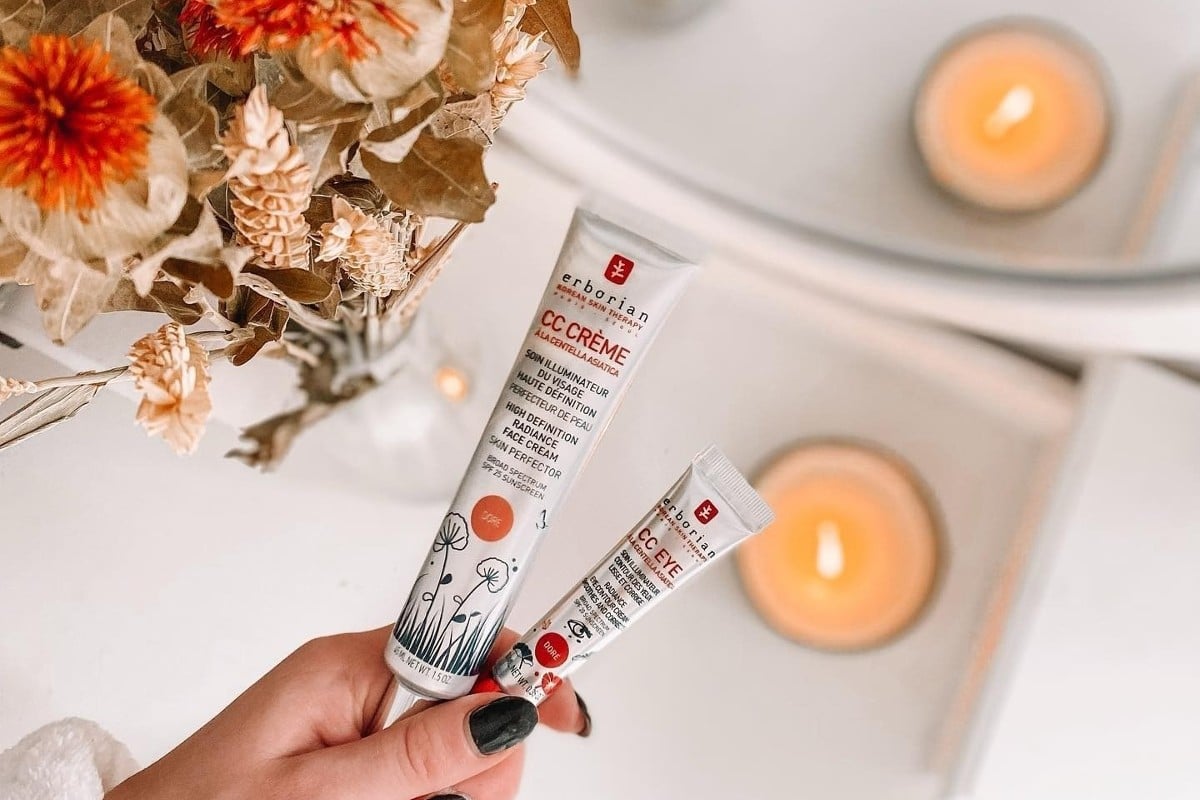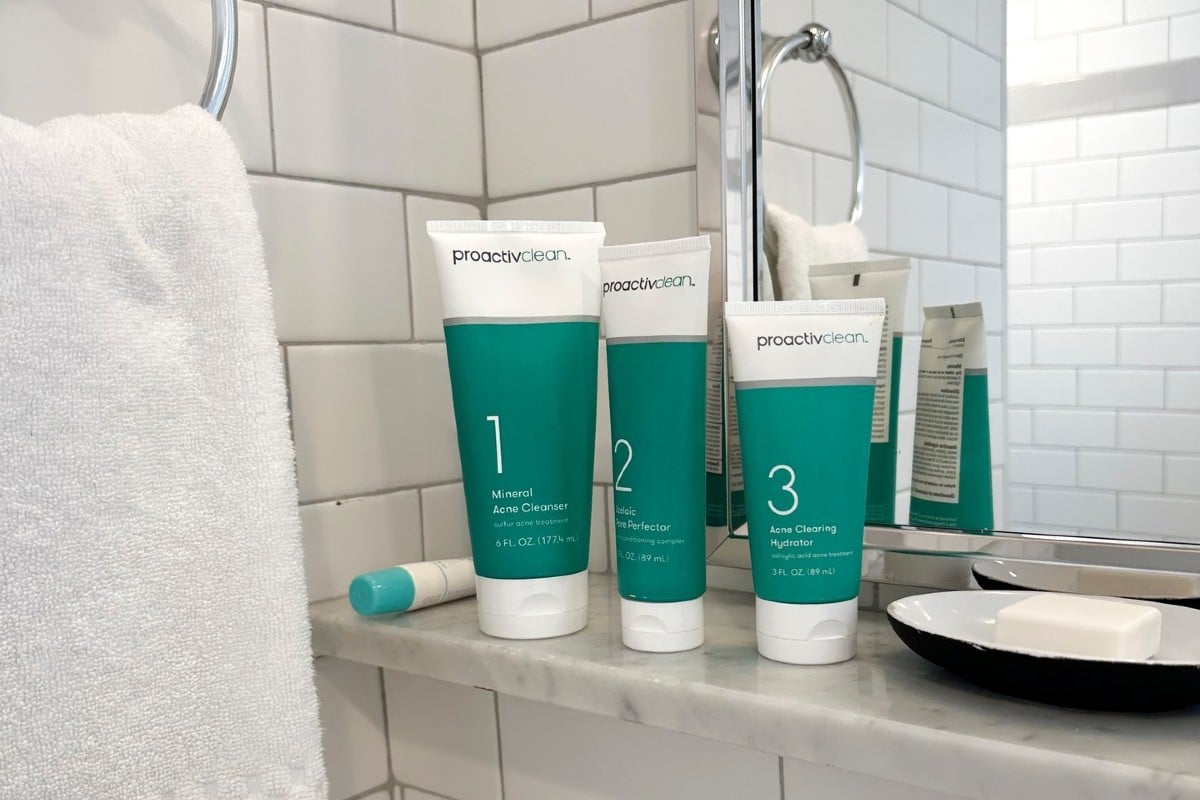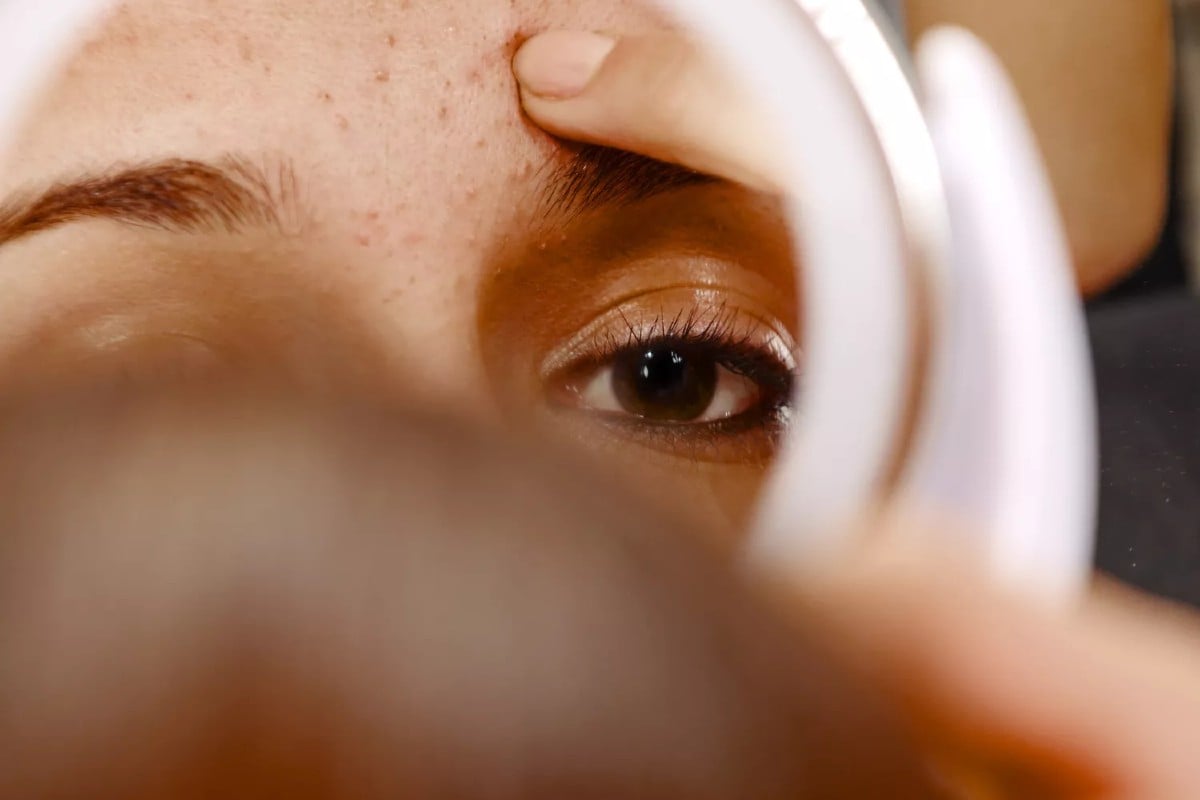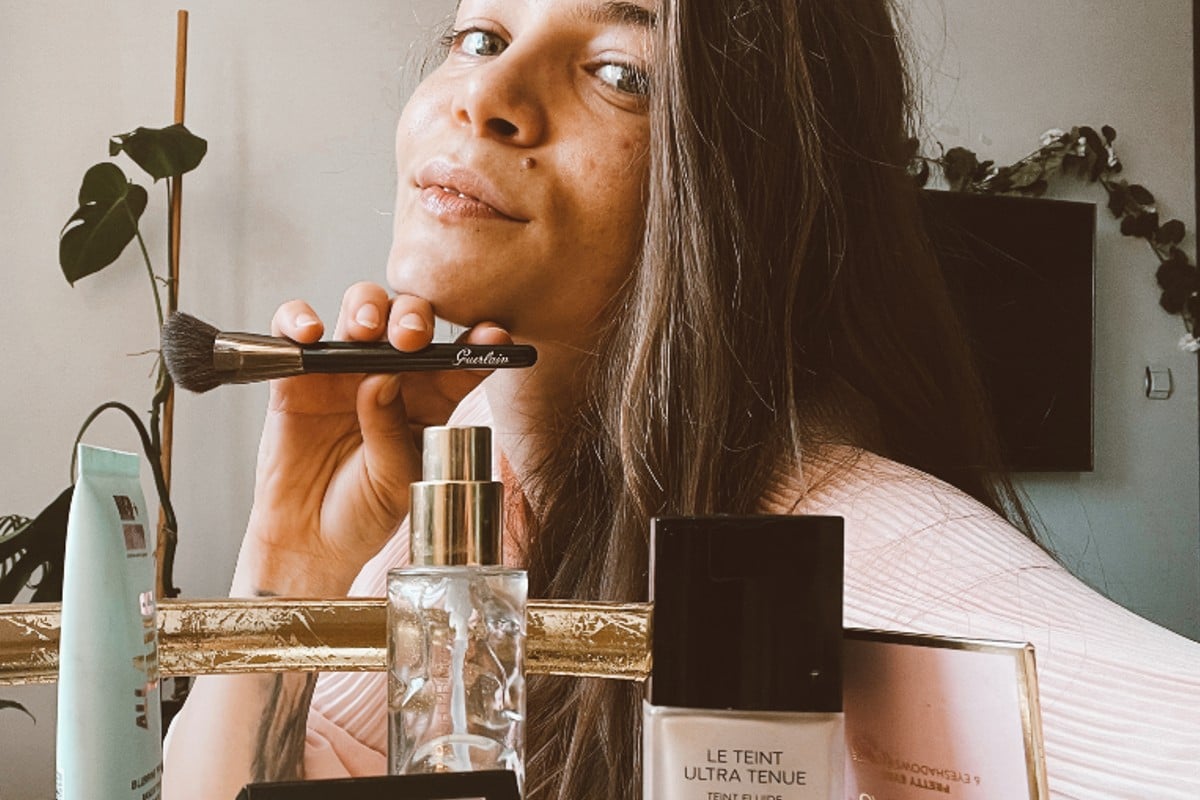We’ve been talking a lot about green tea lately, and this is because we finally got to know what this ancient beverage hides. Not only does green tea have countless benefits for overall health — ranging from body detoxification to weight loss — but it helps in skincare too.
As far as skincare is concerned, moisturizing, reducing wrinkles, and fading dark spots are just a few of the reasons people add green tea to their beauty routines. But later research brought to light even more benefits of green tea that serve in skincare. You guessed it right: green tea is good for acne too! So, for those who seek a natural remedy to tackle breakouts, green tea could be their winning card.
Green tea for acne
Green tea is an effective natural treatment for acne thanks to its high content of polyphenols, which have long been in the spotlight of researchers thanks to their antioxidant and anti-inflammatory benefits. In addition, green tea polyphenols have been shown to treat acne and reduce sebum production by having antimicrobial and anti-androgenic activities against P. acne bacteria.[1]
How does green tea help with acne
Excess sebum, inflammations, bacteria, and clogged pores are often the causes that lead to acne. And there’s evidence to suggest that green tea compounds, especially EGCG, the most abundant catechin, target all these causes. In fact, most data regarding the benefits of green tea on acne is credited to epigallocatechin gallate (EGCG). Let’s now see what evidence exists on how green tea helps with acne.
Green tea has antioxidant properties
Free radicals are toxic molecules involved in many inflammatory skin conditions, acne included. An excess of free radicals causes oxidative stress, represented by an imbalance between antioxidants and free radicals, which plays a major role in acne apparition.[4]
Studies also confirm that people with acne have lower antioxidant activity, advising that acne sufferers should use at least one antioxidant-rich compound to manage their breakouts. The antioxidants proprieties of green tea polyphenols have been heavily studied and are known to increase cell viability against free radicals by up to 80%.[5]
Green tea has anti-inflammatory and antimicrobial properties
One thing is for sure: the buildup of dead cells and excess sebum clog the pores leading to skin inflammation and comedonal pimples.[2] Researchers have repeatedly proved that green tea, mainly catechins, led to a reduction in acne due to its anti-inflammatory and antimicrobial properties that suppress acne-causing bacteria.[3]
Another research confirmed that topical EGCG significantly improved acne after eight weeks by inhibiting acne bacteria and balance oil. Finally, evidence also suggests that EGCG can decrease inflammation associated with bacterial growth, preventing and reducing breakouts.
Green tea reduces sebum production
Excess sebum is one of the primary causes of acne because it clogs the pores and triggers bacteria growth. One factor that stimulates oil production is androgens, hormones that the body produces naturally. Welp, green tea reduces hormonal activity because EGCG is an inhibitor of 5 α-reductase, an enzyme found in sebaceous glands responsible for hormone conversion.[7] More than that, one study from 2013 found that applying 5% green tea extract topically reduced oil production by 27% after 60 days.[8] Similarly, during another research, 3% green tea decreased sebum secretion by as much as 60% in eight weeks.
How good is green tea at treating breakouts?
Green tea’s benefits for reducing breakouts are well-researched. For instance, one study from 2008 compared the daily use of 2% tea lotion with 5% zinc solution.[9] After two months, green tea was found more effective, reducing inflammatory lesions by more than 50% in 85% of cases. In a separate study, 1% EGCG and 5% EGCG reduced non-inflammatory acne by 79% and inflammatory breakouts by 89% after eight weeks.[10]
Is drinking green tea good for acne?
Yes, drinking green tea on a regular basis helps prevent and treat acne by regulating sebum production and inhibiting acne-causing bacteria. However, more data on the benefits of drinking green tea for acne is required to draw a conclusion; most studies were undergone using topical green tea extract. There’s one study exploring how green tea supplements, specifically EGCG, affect acne, suggesting that green tea oral intake helped reduce inflammation breakouts around the nose, mouth, and chin.
Is applying green tea topically more effective in treating acne?
Although oral consumption and topical application of green tea were found beneficial for treating acne, green tea and its compounds are believed to work more effectively when applied topically.
It was confirmed that EGCG could penetrate the skin, with high levels of EGCG getting into the epidermis and dermis. One clinical review showed that using green tea extract topically helped reduce acne, while results were not always consistent when using green tea orally.
Is green tea safe for acne-prone skin?
Overall, green tea is considered safe and tends to be well tolerated when applied topically, even for sensitive and acne-prone skin types. Unless you are allergic to green tea or any of its compounds, you can safely use green tea to clear your breakouts.
How to use green tea to treat acne?
Since green tea works best when applied topically, you’ll have better chances using a green tea skincare product. You can try a mist or moisturizer with green tea/EGCG to fight acne. Another effective way is to use a facial mask with green tea, either a DIY one or a store-bought.
Last but not least, it’s always better to use green tea in conjunction with other acne treatments. There’s no denying green tea is effective when used alone, but you’ll miss a lot if you just count on it to clear breakouts. For mild to severe acne, OTC benzoyl peroxide, salicylic and glycolic acids, retinoids, and niacinamide are a go-to.
- Saric S, Notay M, Sivamani RK. Green Tea and Other Tea Polyphenols: Effects on Sebum Production and Acne Vulgaris. Antioxidants (Basel). 2016 Dec 29;6(1):2. doi: 10.3390/antiox6010002. PMID: 28036057; PMCID: PMC5384166.
- Bhatia A, Maisonneuve JF, Persing DH. PROPIONIBACTERIUM ACNES AND CHRONIC DISEASES. In: Institute of Medicine (US) Forum on Microbial Threats; Knobler SL, O’Connor S, Lemon SM, et al., editors. The Infectious Etiology of Chronic Diseases: Defining the Relationship, Enhancing the Research, and Mitigating the Effects: Workshop Summary. Washington (DC): National Academies Press (US); 2004. Available from: https://www.ncbi.nlm.nih.gov/books/NBK83685/
- Muthu M, Gopal J, Min SX, Chun S. Green Tea Versus Traditional Korean Teas: Antibacterial/Antifungal or Both? Appl Biochem Biotechnol. 2016 Oct;180(4):780-790. doi: 10.1007/s12010-016-2132-6. Epub 2016 May 19. PMID: 27193355.
- Arican O, Kurutas EB, Sasmaz S. Oxidative stress in patients with acne vulgaris. Mediators Inflamm. 2005 Dec 14;2005(6):380-4. doi: 10.1155/MI.2005.380. PMID: 16489259; PMCID: PMC1533901.
- Kim E, Hwang K, Lee J, Han SY, Kim EM, Park J, Cho JY. Skin Protective Effect of Epigallocatechin Gallate. Int J Mol Sci. 2018 Jan 6;19(1):173. doi: 10.3390/ijms19010173. PMID: 29316635; PMCID: PMC5796122.
- Ghosh S, Chaudhuri S, Jain VK, Aggarwal K. Profiling and hormonal therapy for acne in women. Indian J Dermatol. 2014 Mar;59(2):107-15. doi: 10.4103/0019-5154.127667. PMID: 24700926; PMCID: PMC3969667.
- Liao S. The medicinal action of androgens and green tea epigallocatechin gallate. Hong Kong Med J. 2001 Dec;7(4):369-74. PMID: 11773671.
- Mahmood T, Akhtar N, Moldovan C. A comparison of the effects of topical green tea and lotus on facial sebum control in healthy humans. Hippokratia. 2013 Jan;17(1):64-7. PMID: 23935347; PMCID: PMC3738281.
- Sharquie KE, Noaimi AA, Al-Salih MM. Topical therapy of acne vulgaris using 2% tea lotion in comparison with 5% zinc sulphate solution. Saudi Med J. 2008 Dec;29(12):1757-61. PMID: 19082228.
- Yoon JY, Kwon HH, Min SU, Thiboutot DM, Suh DH. Epigallocatechin-3-gallate improves acne in humans by modulating intracellular molecular targets and inhibiting P. acnes. J Invest Dermatol. 2013 Feb;133(2):429-40. doi: 10.1038/jid.2012.292. Epub 2012 Oct 25. PMID: 23096708.





